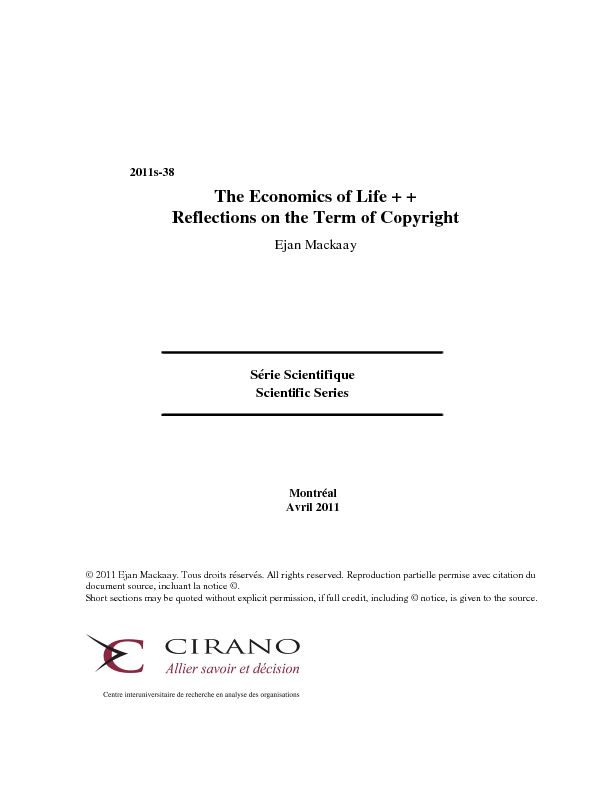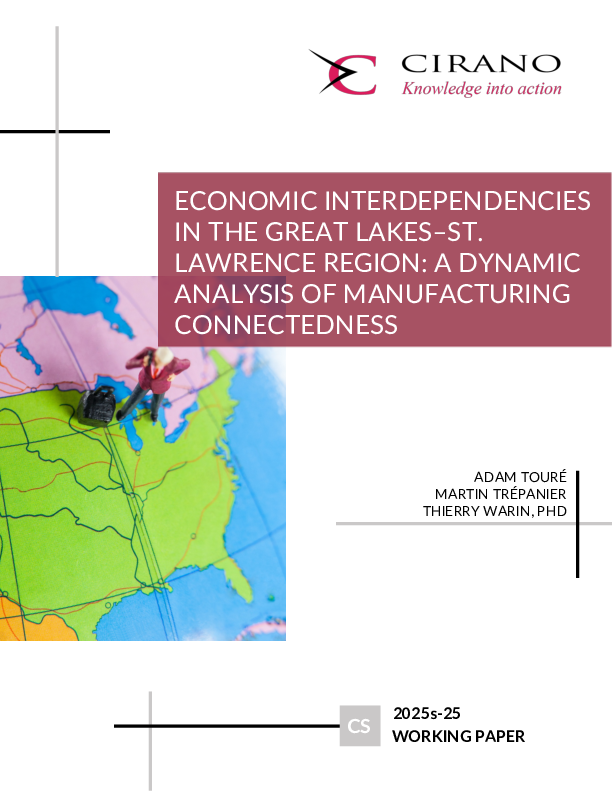The Economics of Life ++ - Reflections on the Term of Copyright
Copyright, and indeed all intellectual property, reflects a compromise between the need for reward on creations we see by reserving them to the creator and the need to let information freely flow so as to permit further creations to emerge with as few encumbrances as possible. Over the past quarter century or so, all parameters of copyright have been moved towards more protection, disturbing the underlying compromise. The term of protection extends well beyond what is practically useful for the vast majority of creators, much as it may serve the needs of a small number of large players who hold important older copyrights still producing revenue. This paradoxical situation results from a few founding principles considered untouchable in the countries members of the Berne Convention: it is automatically obtained, without formality and for a uniform and rather lengthy term. If we want to redress the balance underlying copyright, we may have to call these principles into question and lead creators individually to reveal the value they attach to their right by renewing it, allowing it to lapse into the public domain when they no longer value it. Whilst this would reintroduce formalities into the structure of copyright, technological advances may make these less of a burden than they were at the time of their abolition. Alternatively, one might consider an interpretation of equitable exceptions to copyright (such as fair use and fair dealing) so as to expand them gradually as the copyright in question ages. Such approaches would have the fortunate effect of avoiding that lobbying by the happy few needlessly locks up culture for most of us.
[ - ]




